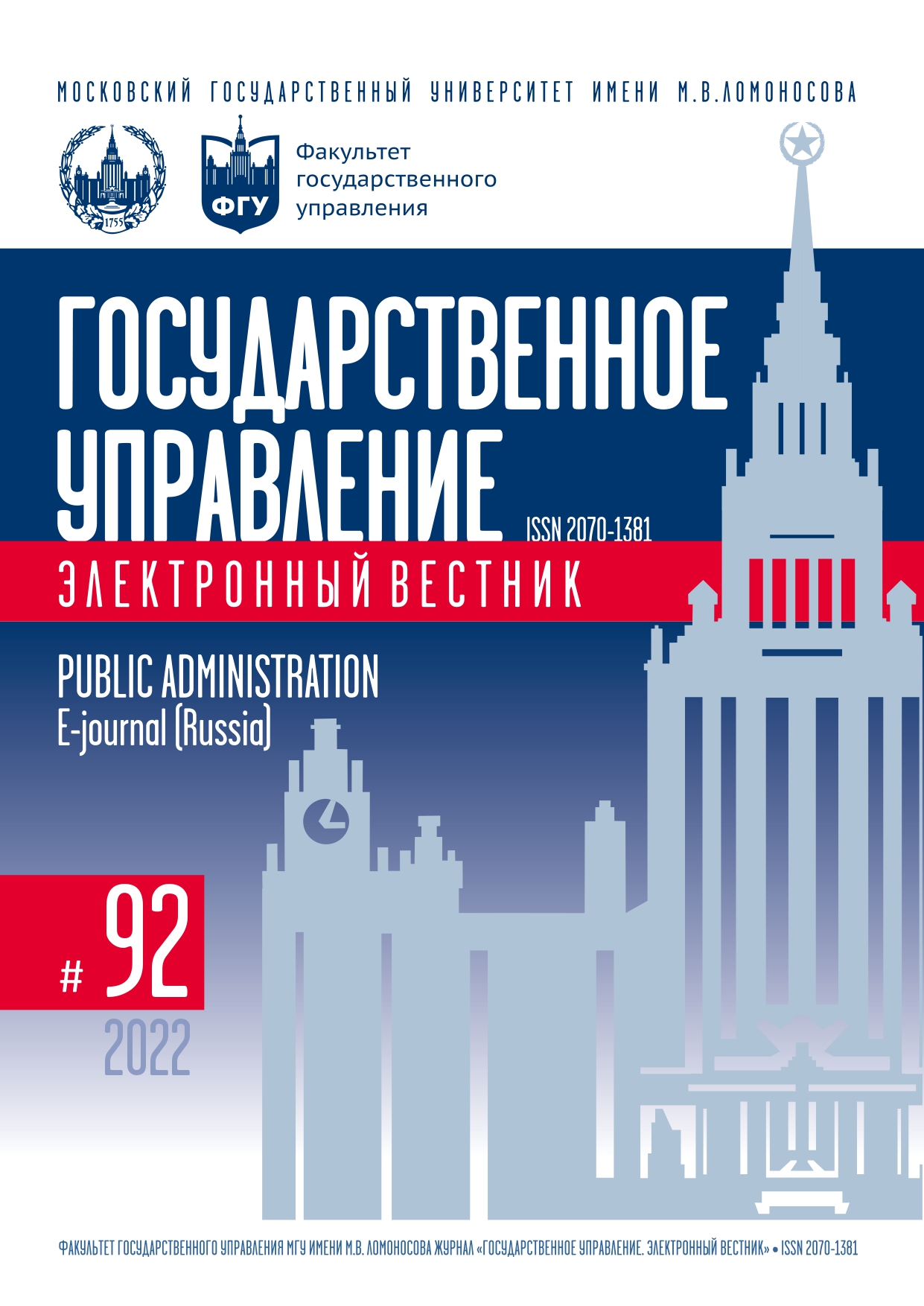Concept and Principles of Economy State Regulation for Overcoming Economic Crisis in Russian Federation
Keywords:
Strategic planning, government regulation, economic policy, digitalization, import substitution, macroeconomics, digital economyAbstract
The global economic crisis is unfolding more strongly due to the pandemic and the consequences of restrictive measures from the United States and the countries of the European Union. Expanding sanctions from the West are pushing the Russian Federation to take actions that will be decisive both for the country’s economy and the world as a whole. Classical methods of the economy state regulation are struggling with the consequences of the financial crisis, but do not eliminate the cause of the economic, which lies in the disproportion of development. Today, the centralization of capital has reached a critically high level, inflation is accelerating, and import substitution concerns only final consumption goods, which does not correspond to the conditions of economic growth, according to which the production of capital goods should be ahead of the curve. In this regard, it is necessary to revise the approach to state intervention and define new principles or criteria. The principles of state regulation can provide an easy process of transformation of the economic system, the transition to a new economic order, as well as guarantee the safety and security of the system. Among them are the following: the use of integrated planning for economic and social development; forecasting indicators of safe development of the socio-economic sphere; implementation of national targeted comprehensive social programs; scientific substantiation of state regulation; validity from the scientific point of view of economic cybernetics management; compliance with the goals and national interests of the state; integrity and coordination of ongoing measures, consistency; dynamism and availability of strategic planning; use of digital and information technologies; transition to automated control; the principle of safety and focus on efficiency.
References
Ведута Н.И. Социально эффективная экономика. М.: Издательство РЭА, 1999.
Герасин А.Н. Интегрированный экономический потенциал и государственное регулирование экономики // Экономические системы. 2018. Т. 11. № 3 (42). С. 16–23.
Герасина О.Н. Принципы государственного регулирования конкурентоспособности // Россия и Европа: связь культуры и экономики. Материалы XI международной научно-практической конференции: в 2-х частях. Прага: World Press, 2015. Ч. 2. C. 73–74.
Евтянова Д.В. Критерии создания цифровых платформ управления экономикой // Экономические системы. 2017. Т. 10. № 3 (38). С. 54–57. DOI:10.29030/2309-2076-2017-10-3-54-58
Камаева Я.М. Государственное регулирование экономики // Вестник молодых ученых Самарского государственного экономического университета. 2019. № 2 (40). С. 56–59.
Макарова Т.Н., Семенова Е.Е. Основные направления государственного регулирования экономики // Образование и наука без границ: фундаментальные и прикладные исследования. 2021. № 14. С. 51–57. DOI: 10.36683/2500-249X/2021-14/51-57
Розанов Д.А. Государственное регулирование национальной экономики как закономерный результат эволюции рыночной экономики // Технолого-экономическое образование. 2019. № 11. С. 97–102.
Столярова Л.Г., Агеева А.Ю. Цифровая экономика — тенденции развития в России // Вестник Тульского филиала Финуниверситета. 2020. № 1. С. 359–361.
Трофимов С.Е. Теоретические вопросы и модели государственного регулирования экономики // Известия вузов. Инвестиции. Строительство. Недвижимость. 2021. Т. 11. № 4. С. 588–601. DOI: 10.21285/2227-2917-2021-4-588-601
Ilyash O. Тhe Principles of State Regulation in the Sphere of Socio-Economic Security of Ukraine // Економiчний часопис-XXI. 2014. № 7–8–1. С. 24–28.
Novikova N.V., Strogonova E.V. Regional Aspects of Studying the Digital Economy in the System of Economic Growth Drivers // Journal of New Economy. 2020. Vol. 21. Is. 2. P. 76–93. DOI: 10.29141/2658-5081-2020-21-2-5
Downloads
Published
How to Cite
Similar Articles
- Daria V. Evtyanova, Artificial Neural Networks as a Tool for Economic Development Planning , Public Administration. E-journal (Russia): No. 84 (2021)
- Igor N. Molchanov, Natalia P. Molchanova, State Financial Policy of Russia: Features of Development and Implementation in New Geopolitical Conditions , Public Administration. E-journal (Russia): No. 100 (2023)
- Sergey E. Trofimov , State Policy of Import Advance in the Russian Oil and Gas Complex , Public Administration. E-journal (Russia): No. 99 (2023)
- Matvey S. Oborin, Mechanisms for Stimulating Innovative Development of Single-Industry Towns in Arctic Territories , Public Administration. E-journal (Russia): No. 91 (2022)
- Anna S. Titova, Maria A. Sukhareva, Alexey I. Fedoseev, Analysis of Community Approaches in Digital Economy Field and Its Social Implications , Public Administration. E-journal (Russia): No. 93 (2022)
- Zoya A. Kapelyuk, Irina P. Solovyova , Instruments for State Regulation of the Market of Plant Cell Concentrates Based on Medicinal Herbs , Public Administration. E-journal (Russia): No. 108 (2025)
- Kirill Yu. Degtyarev, Reducing the Effectiveness of Sanctions: Analysis of the Sanctions Impact (2022–2024) , Public Administration. E-journal (Russia): No. 108 (2025)
- Ludmila K. Matveeva, Ilya I. Nikiforov, Some Results of Far Eastern Federal District Social and Economic Development in 2012–2020 , Public Administration. E-journal (Russia): No. 87 (2021)
- Elena N. Veduta, Vitaly A. Zhiryakov , GOELRO Plan as the First Experience of Strategic Planning in Economy , Public Administration. E-journal (Russia): No. 85 (2021)
- Larisa V. Lapidus, Role of Technological Innovations in Business Development and Digital Transformation in Eurasian Economic Union Countries , Public Administration. E-journal (Russia): No. 95 (2022)
You may also start an advanced similarity search for this article.




